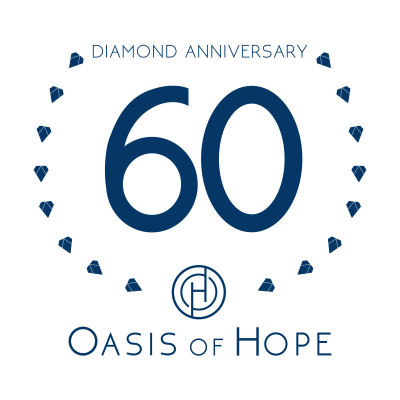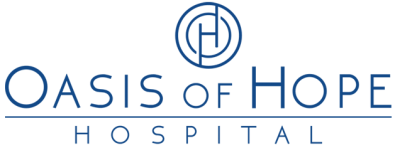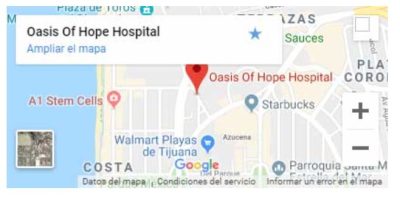Inside your body there is an amazing protection mechanism called the immune system. Our bodies are constantly engaged in the action of neutralizing danger outside and inside. The immune system is a group of mechanisms within the body that protects against disease by identifying and killing pathogens, or germs and mutated cells, or tumors. Most importantly, the immune system can distinguish the difference between dangerous elements and healthy cells.
Immune Stimulation Therapy
Immune stimulation therapy aims to boost the anticancer activity of immune cells (i.e. white blood cells) by stimulating their activation, while at the same time blocking the activity of tumor-generated agents that deactivate or kill immune cells. A well-functioning immune system is often crucial for maintaining long-term remission, and for inhibiting the metastatic spread of cancer.
Contreras Metabolic Integrative Therapy Research
Immune Stimulation Therapy
At Oasis of Hope we include many agents that can aid the immune system’s ability to attack cancer by optimizing the function of natural killer (NK) cells and cytotoxic T lymphocytes. NK cells have the potential to kill a broad range of cancer cells, whereas cytotoxic T lymphocytes target cancer cells that express specific proteins not produced by healthy tissues. Although immune cells are rarely capable of destroying large tumors, they have good potential for killing the small nests of tumor cells that give rise to new metastases or that can cause a recurrence of cancer following a remission.
One of the most intriguing immune supportive agents employed by Oasis is the hormone melatonin, administered once daily before bedtime. Multiple clinical studies in Italy show that this regimen tends to have a very favorable, statistically significant impact on survival in patients with advanced cancer (1-3). There is reason to believe that the chief reason for melatonin’s positive effect on survival in cancer patients is an immune stimulant effect that boosts the activity of natural killer (NK) cells and cytotoxic T lymphocytes. This effect is indirect; melatonin acts on so-called antigen-presenting cells (dendritic cells) to amplify their capacity to stimulate the NK cells and cytotoxic lymphocytes. Melatonin boosts the ability of dendritic cells to produce interleukin-12, a lymphokine that plays a crucial role in the maturation of the cancer-attacking immune cells (4-6).
Among the immune supportive measures included are probiotics – enterically coated capsules providing live healthy bacteria that can colonize the gastrointestinal tract. Enteric coating protects the bacteria from stomach acid as they pass through to the intestines. The bacteria that are chosen for this supplement (including special strains of Lactobacilli and Bifidobacteria) have been shown to exert immune stimulant effects, mediated by their polysaccharide cell walls. These bacterial polysaccharides are partially absorbable, and interact with so-called “toll” receptors on dendritic cells to boost the ability of these cells to promote the growth and activation of NK cells and cytotoxic lymphocytes (7-9). In effect, the dendritic cells are programmed to recognize bacterial polysaccharides as foreign material produced by invading bacteria; they respond appropriately by up-regulating immune capacities. Supplemental selenium also has immune boosting activity. Intakes of selenium slightly more than the minimal amounts that are nutritionally essential have been shown to increase the capacity of stimulated lymphocytes and NK cells to express receptors for interleukin-2 (IL-2) (10-12). IL-2 is a hormone-like protein (a “lymphokine”) that acts as an essential growth factor for the types of immune cells that have the capacity to attack and kill cancer cells – the NKcells and cytotoxic T lymphocytes.
The anti-ulcer drug cimetidine is included in IRT protocols primarily because of evidence that it can reduce risk for metastasis formation with many cancers. However, there is also evidence that cimetidine has immune-supportive activity for NK cells and lymphocytes in cancer patients (13-15).
Cancers often manage to evade immune destruction by evolving mechanisms that attack immune cells, reducing their tumor-destructive capacities or even killing them. Oasis of Hope regimens include many measures that are intended to counteract the defensive measures which tumors employ to survive. Metronomic chemotherapy, while useful for slowing the angiogenic process, is also useful for controlling so-called Treg cells, special lymphocytes that often colonize tumors and kill or disable attacking immune cells by producing immunosuppressive factors (such as transforming growth factor-beta). Fortunately, Treg cells, like the endothelial cells engaged in angiogenesis, are exquisitely sensitive to being killed by small doses of cytotoxic chemotherapy drugs – doses too small to harm other immune cells or cause notable side effects (16). Remarkably, this is a case in which chemotherapy can boost immune defenses!
Many tumors express an enzyme called cox-2 that produces immunosuppressive compounds known as prostaglandins. The anti-inflammatory drug diclofenac, a component of the IRT regimens, blocks the production of prostaglandings by inhibiting cox-2 – thereby counteracting immunosuppression.
Adenosine is another immunosuppressive agent produced in many tumors – especially in poorly oxygenated tumor regions (17,18). It has long been known that the mental-energizing effects of caffeine reflect the ability of caffeine to block the activation of adenosine receptors in the brain. Caffeine evidently has the same potential in tumors – and so can offset the immunosuppressive activity of tumor-produced adenosine, as has been demonstrated in tumor-bearing mice (17). That is why, in some patients who tolerate coffee well, we recommend several cups of strong coffee daily. (But we won’t force it down your throat if coffee makes you too edgy or impairs your sleep!).
Oxidative stress, produced either by tumors or by certain types of immune cells, is extremely toxic to NK cells and cytotoxic lymphocytes, impairing their tumor-killing capacities and even killing them (19-21). Most of this oxidative stress is generated by the NADPH oxidase enzyme complex (22,23). A key phytonutrient found in spirulina, phycocyanobilin, can function as a potent inhibitor of this enzyme complex, going to the root of oxidative stress (24). That’s one key reason why we include dietary spirulina – provided by our product Chocolatl Verde – in the At-Home regimen. Moreover, like probiotic bacteria, spirulina contains cell wall polysaccharides that have been shown to stimulate immune-supportive dendritic cells (25,26). And you will recall that, by inhibiting NADPH oxidase, spirulina can act directly on some cancer cells to slow their growth and spread, and can also interfere with the angiogenic process (23,27). So spirulina appears to work in at least four complementary ways to slow tumor growth and support the immune rejection of tumors.
Another agent with likely benefit in this regard employed by Oasis of Hope is the amino acid glutamine, provided in our product GPG. Glutamine functions as a key source of calories for immune cells.













